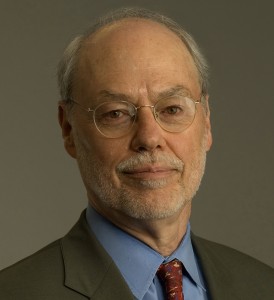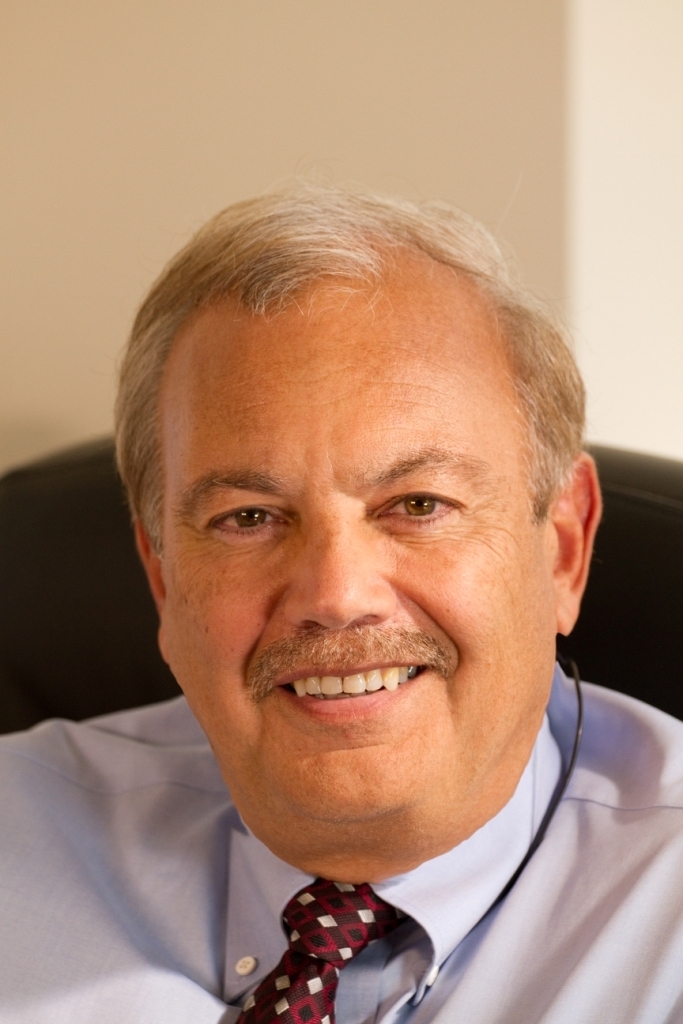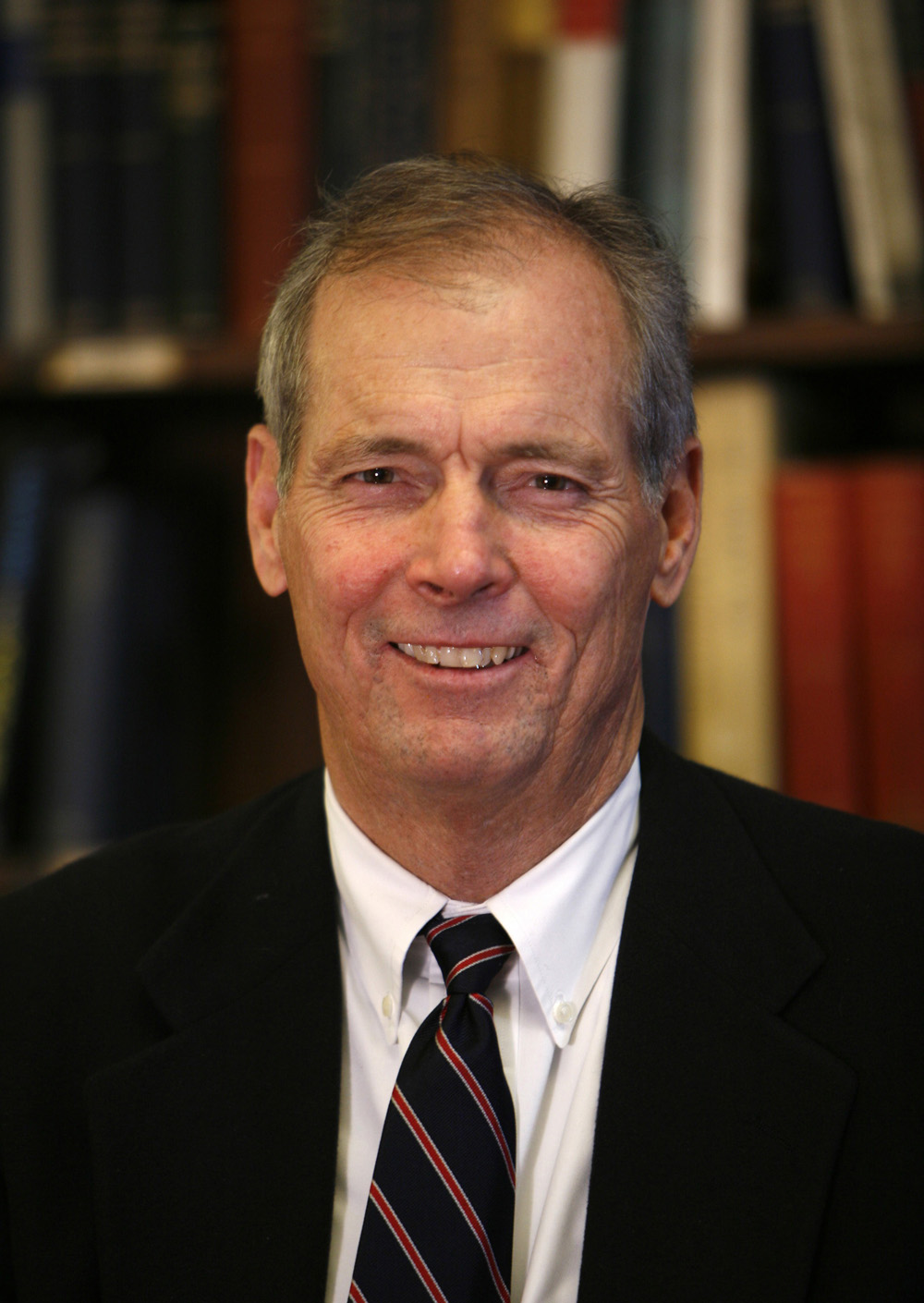2013 Honorees
Phillip Sharp, Ph.D.
Koch Institute for integrative Cancer Research at MIT
 Phillip A. Sharp, Institute Professor (highest academic rank) at MIT and faculty member of the Koch Institute for Integrative Cancer Research and Department of Biology, has made fundamental contributions to cancer biology and to understanding gene structure and regulation. Sharp’s seminal discovery of ‘split genes’ in eukaryotic cells and the associated mechanism of pre-mRNA splicing resulted in numerous awards and honors, including the Nobel Prize in Physiology or Medicine (1993), the Lasker Prize (1988), the Gairdner Foundation International Award (1986), and the 2004 National Medal of Science. In addition, he holds numerous honorary degrees from universities here and abroad and serves on many advisory boards for the government, academic institutions, scientific societies, and companies. He is an elected member of the National Academy of Sciences, the Institute of Medicine, the American Academy of Arts and Sciences, and the Royal Society of the UK. His MIT career spans over 39 years, where he served as Director of the Center for Cancer Research (now the Koch Institute), Head of the Department of Biology and later Founding Director of the McGovern Institute for Brain Research. A native of Kentucky, Dr. Sharp earned a B.A. degree from Union College, KY in 1966, and a PhD in chemistry from the University of Illinois, Champaign-Urbana in 1969. He did his postdoctoral training at the California Institute of Technology, where he studied the molecular biology of plasmids from bacteria in Professor Norman Davidson’s laboratory. Prior to joining MIT, he was Senior Scientist at Cold Spring Harbor Laboratory. In 1978 Dr. Sharp co-founded Biogen (now Biogen Idec) and in 2002 he co-founded Alnylam Pharmaceuticals.
Phillip A. Sharp, Institute Professor (highest academic rank) at MIT and faculty member of the Koch Institute for Integrative Cancer Research and Department of Biology, has made fundamental contributions to cancer biology and to understanding gene structure and regulation. Sharp’s seminal discovery of ‘split genes’ in eukaryotic cells and the associated mechanism of pre-mRNA splicing resulted in numerous awards and honors, including the Nobel Prize in Physiology or Medicine (1993), the Lasker Prize (1988), the Gairdner Foundation International Award (1986), and the 2004 National Medal of Science. In addition, he holds numerous honorary degrees from universities here and abroad and serves on many advisory boards for the government, academic institutions, scientific societies, and companies. He is an elected member of the National Academy of Sciences, the Institute of Medicine, the American Academy of Arts and Sciences, and the Royal Society of the UK. His MIT career spans over 39 years, where he served as Director of the Center for Cancer Research (now the Koch Institute), Head of the Department of Biology and later Founding Director of the McGovern Institute for Brain Research. A native of Kentucky, Dr. Sharp earned a B.A. degree from Union College, KY in 1966, and a PhD in chemistry from the University of Illinois, Champaign-Urbana in 1969. He did his postdoctoral training at the California Institute of Technology, where he studied the molecular biology of plasmids from bacteria in Professor Norman Davidson’s laboratory. Prior to joining MIT, he was Senior Scientist at Cold Spring Harbor Laboratory. In 1978 Dr. Sharp co-founded Biogen (now Biogen Idec) and in 2002 he co-founded Alnylam Pharmaceuticals.
Phillip Sharp’s Acceptance Remarks
Dennis J. Slamon, M.D., Ph.D.
UCLA
Dr. Dennis J. Slamon’s work resulted in the first molecularly targeted treatment for breast cancer. He serves as director of the Revlon/UCLA Women’s Cancer Research Program at UCLA’s Jonsson Comprehensive Cancer Center. He is also a professor of medicine, chief of the Division of Hematology/Oncology and executive vice chair for research for the UCLA Department of Medicine. Additionally, Slamon serves as director of Clinical/Translational Research and the Revlon/UCLA Women’s Health Research Program at the cancer center. For 12 years, Slamon and his colleagues conducted the laboratory and clinical research that led to the development of Herceptin, which targets a genetic alteration found in about 25 percent of breast cancer patients. Herceptin, approved by the U.S. Food & Drug Administration in September 1998, was the first in a wave of new treatments that target genetic mutations that cause cells to become malignant. In June 2002, President Bill Clinton appointed Dr. Slamon to a two-year term on the three-member President’s Cancer Panel. Dr. Slamon has received numerous prizes for his scientific endeavors including: the Dorothy P. Landon-AACR Prize for Translational Cancer Research in 2003; the American Cancer Society Medal of Honor, the top award bestowed by the organization in 2004; the American Society of Clinical Oncology’s David A. Karnofsky Memorial Award and Lecture in 2006; the 19th annual Warren Alpert Foundation Scientific Prize, awarded by Harvard Medical School in 2007; and the Gairdner International Award, one of the most prestigious awards in biomedical science, in 2007. Dr. Slamon is a 1975 honors graduate of the University of Chicago, Pritzker School of Medicine, having received an M.D.and a Ph.D. in cell biology the same year. He completed his internship and residency at the University of Chicago Hospitals and Clinics, becoming Chief Resident in 1978. One year later, he became a fellow in the Division of Hematology/Oncology at UCLA.
Dennis Slamon’s Acceptance Remarks
George Sledge, Jr., M.D.
Stanford University School of Medicine
 Dr. George Sledge is chief of Oncology in Stanford’s Department of Medicine. Prior to joining Stanford on January 14, 2013, Dr. Sledge was co-director of the breast cancer program at the Indiana University Cancer Center, where he was a Professor of Medicine and Pathology at the Indiana University Simon Cancer Center and he held the Ballve-Lantero Endowed Chair. Dr. Sledge specializes in the study and treatment of breast cancer and directed the first large, nationwide study on the use of paclitaxel to treat advanced breast cancer. His recent research focuses on novel biologic treatments for breast cancer. He has published over 250 articles in medical journals about breast cancer and chaired several nationwide clinical trials involving new breast cancer treatments. His work spans both laboratory and clinic. Dr Sledge serves as Editor-in-Chief of the journal Clinical Breast Cancer, and is Immediate Past President of the American Society of Clinical Oncology (ASCO). He served as chairman of the Breast Committee of the Eastern Cooperative Oncology Group from 2002 – 2009, where he played an important role in the development of several nationwide clinical trials. He has also served as chair of ASCO’s Education Committee, as a member of the Department of Defense Breast Cancer Research Program’s Integration Panel, as a member of the Food and Drug Administration’s Oncology Drug Advisory Committee (ODAC), and currently as a member of the External Advisory Committee for The Cancer Genome Atlas (TCGA) project. Dr. Sledge was the recipient of the 2006 Komen Foundation Brinker Award for Scientific Distinction, the 2007 Breast Cancer Research Foundation’s Jill Rose Award and was the 2010 recipient of the William L. McGuire Award from the San Antonio Breast Cancer Symposium.
Dr. George Sledge is chief of Oncology in Stanford’s Department of Medicine. Prior to joining Stanford on January 14, 2013, Dr. Sledge was co-director of the breast cancer program at the Indiana University Cancer Center, where he was a Professor of Medicine and Pathology at the Indiana University Simon Cancer Center and he held the Ballve-Lantero Endowed Chair. Dr. Sledge specializes in the study and treatment of breast cancer and directed the first large, nationwide study on the use of paclitaxel to treat advanced breast cancer. His recent research focuses on novel biologic treatments for breast cancer. He has published over 250 articles in medical journals about breast cancer and chaired several nationwide clinical trials involving new breast cancer treatments. His work spans both laboratory and clinic. Dr Sledge serves as Editor-in-Chief of the journal Clinical Breast Cancer, and is Immediate Past President of the American Society of Clinical Oncology (ASCO). He served as chairman of the Breast Committee of the Eastern Cooperative Oncology Group from 2002 – 2009, where he played an important role in the development of several nationwide clinical trials. He has also served as chair of ASCO’s Education Committee, as a member of the Department of Defense Breast Cancer Research Program’s Integration Panel, as a member of the Food and Drug Administration’s Oncology Drug Advisory Committee (ODAC), and currently as a member of the External Advisory Committee for The Cancer Genome Atlas (TCGA) project. Dr. Sledge was the recipient of the 2006 Komen Foundation Brinker Award for Scientific Distinction, the 2007 Breast Cancer Research Foundation’s Jill Rose Award and was the 2010 recipient of the William L. McGuire Award from the San Antonio Breast Cancer Symposium.
George Sledge’s Acceptance Remarks
Mr. Jobson, a cancer survivor and advocate, was the America’s Cup Winning Tactician in 1977, sailing on Courageous with Ted Turner. Prior to winning the America’s Cup, Gary was selected for the All-America Intercollegiate Sailing Team from 1971 to 1973, and in 1972 and 1973 was named the Intercollegiate Sailor of the Year. He was elected to the Sailing World Hall of Fame in 1982. In October 2003, Gary was inducted into the America’s Cup Hall of Fame by the Herreshoff Marine Museum, after having won the Nathanael G. Herreshoff Trophy, US SAILING’s most prestigious award, in 1999. In October 2011, Mr. Jobson was inducted into the National Sailing Hall of Fame. Mr. Jobson was awarded a Doctor of Letters from the State University of New York Maritime College in 2005. While on a speaking tour in April of 2003, Gary became ill and was eventually diagnosed with non-Hodgkin lymphoma. He said he found it “quite ironic”, since he had headed a charity regatta for the Leukemia and Lymphoma Society for many years. Gary has been the National Chairman of the Leukemia Cup Regatta, the Leukemia & Lymphoma Society’s sailing program, since 1994. These events have raised over $40 million to date. In 2004, he received the Spiral of Life Award from the Leukemia & Lymphoma Society and in 2011 Mr. Jobson received the Charles M. Leighton Award for Outstanding Service. In addition to his accomplishments as a sailor and cancer advocate, Mr. Jobson is an award-winning journalist and writer, having won the Cable Ace Awards for the 1987 America’s Cup, an Emmy in 1988 for his coverage of the 1988 Olympic Games, and the Best Sports Book Award of 2002, awarded to him in 2003 by the Independent Publisher Book Awards in America for his book Fighting Finish. He has been ESPN’s sailing commentator since 1985. He is currently President of US SAILING, and is covering the 34th America’s Cup for NBC.

